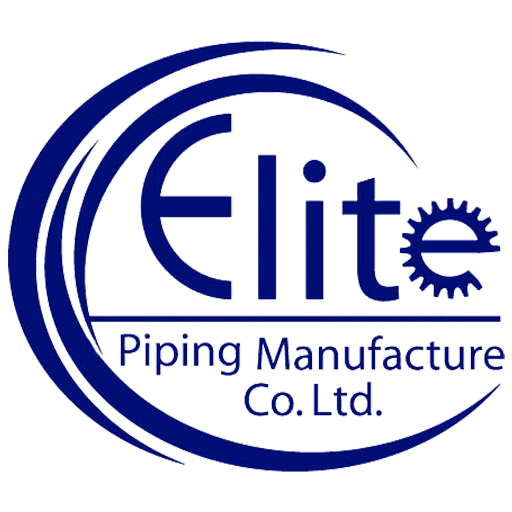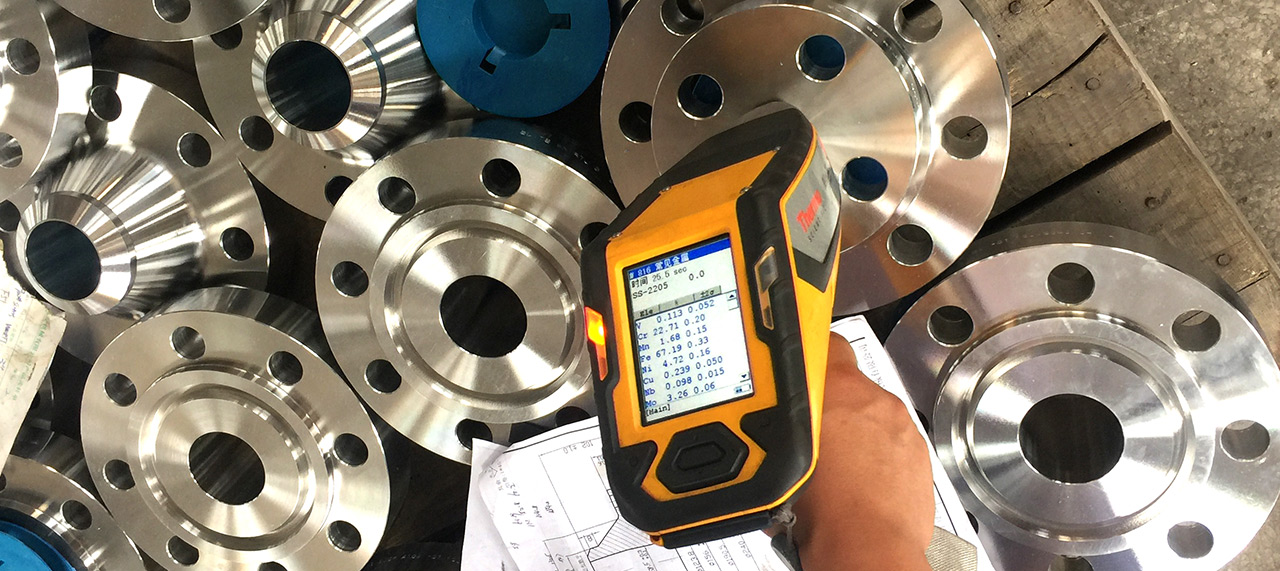Share this
In industrial production, flanges are critical components in piping systems, and their quality directly impacts the safety and stability of the entire system. To ensure the reliability of flanges and their compliance with international standards, PMI (Positive Material Identification) has become an indispensable part of flange inspection.
Importance of PMI Testing
PMI is a technique used to quickly identify the elemental composition of materials and verify whether they meet specified standards. During flange manufacturing, the choice of material determines key performance indicators such as corrosion resistance, heat resistance, and strength. If the material composition does not meet design requirements, it could lead to leaks, fractures, or even major accidents.
Through PMI testing, manufacturers can:
- Ensure material compliance: Verify that raw materials meet international standards such as ASTM and ASME.
- Prevent material mixing: Avoid quality risks caused by material mix-ups during production.
- Guarantee safety: Ensure the long-term stability of flanges in complex operating conditions.
PMI Testing Process
- Sample preparation: Clean the flange surface to remove contaminants that could affect test results.
- Equipment calibration: Calibrate portable XRF (X-ray fluorescence spectrometer) or OES (optical emission spectrometer) equipment using standard samples.
- Data collection: Direct the equipment at the flange to analyze its elemental composition and record the chemical data.
- Result comparison: Compare the test results with technical specifications or customer requirements to ensure consistency.
Core of PMI Testing: Elemental Composition Analysis
The crux of PMI testing lies in elemental composition. Below are the key elements commonly found in flange materials and their roles:
- Carbon (C): Determines steel’s hardness and strength, but excessive amounts reduce toughness and corrosion resistance.
- Manganese (Mn): Enhances strength and hardening properties while reducing the tendency for cracks.
- Silicon (Si): Improves oxidation resistance and high-temperature durability.
- Chromium (Cr): Provides excellent corrosion resistance, especially in stainless steel flanges.
- Nickel (Ni): Enhances toughness and corrosion resistance, particularly in low-temperature environments.
- Molybdenum (Mo): Improves strength and resistance to pitting corrosion, essential in marine or chemical environments.
Real-World Applications of PMI Testing
Case 1: Ensuring Export Quality
A batch of weld neck flanges intended for high-pressure pipelines underwent stringent PMI testing before export. The tests revealed that nickel content in one batch was below the standard for stainless steel. By identifying the issue early, the manufacturer replaced the materials, avoiding potential risks and earning the client’s trust.
Case 2: Preventing Engineering Hazards
In a chemical plant project, PMI testing revealed that some flanges did not meet the chromium content required for high corrosion resistance. The team promptly replaced these with compliant flanges, averting potential equipment corrosion issues.
Advantages of PMI Testing
- Efficiency: Portable devices provide results within minutes, saving time.
- Non-destructive: Materials can be tested without causing any damage.
- Broad applicability: Suitable for carbon steel, stainless steel, alloy steel, and more.
- Standards compliance: Meets global industrial standards for material inspection.
Elite Piping’s PMI Testing Expertise
As a professional flange manufacturer, Elite Piping is committed to excellence in quality management. We utilize advanced PMI equipment to rigorously test every flange product, ensuring that its chemical composition fully meets standards. Whether it’s a standard carbon steel flange or a high-performance alloy flange for extreme conditions, our scientific testing methods guarantee product performance and safety for our customers.
Seamless Integration of PMI Testing with Customer Needs
In a globalized market, different countries and industries have diverse requirements for material composition. Through PMI testing, Elite Piping can quickly respond to customer needs and deliver tailored product solutions. For example, in the petrochemical sector, we offer flanges with nickel content precisely calibrated to 0.01%, ensuring durability in harsh environments.
Upholding Quality Through Inspection
PMI testing is not just a technical process but a commitment to product quality. By implementing rigorous material inspection procedures, Elite Piping ensures both product reliability and customer trust. Moving forward, we will continue to lead industry advancements and provide our clients with superior flange products and services.

